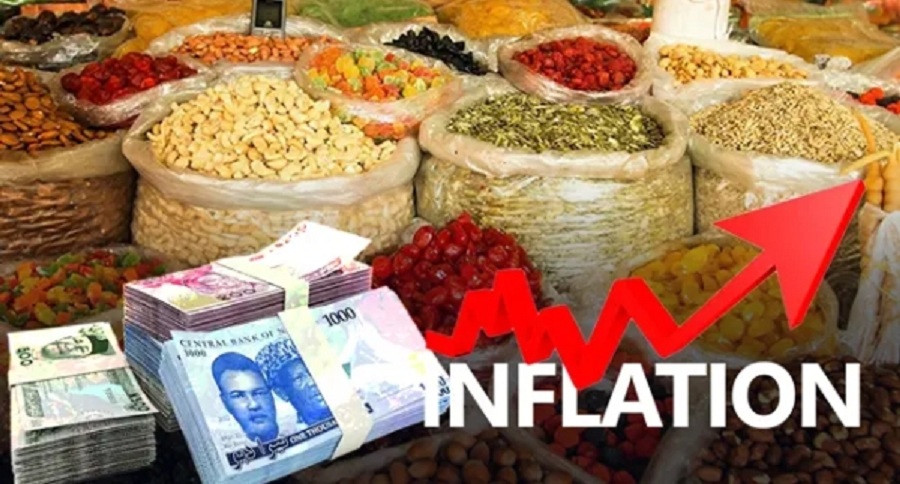Nigeria’s food inflation has reached an all-time high of 40.87 percent as the Bola Tinubu-led government embarked on reforms that have spiked the cost of living.
Figures released by the National Bureau of Statistics on Monday show that in June 2024, the headline inflation rate increased to 34.19 percent relative to the May 2024 headline inflation rate of 33.95 percent.
The country’s inflation has risen on a year-on-year basis by 11.40 percent compared with the 22.79 percent recorded last year.
Food inflation has also grown to 40.87 percent on a year-on-year basis. Compared to last year, the figure is 15.62 percent points higher compared to the rate recorded in June 2023 of 25.25 percent.
NBS said food inflation on a year-on-year basis was caused by increases in prices. Millet whole grain, Garri, Guinea corn, etc (Bread and Cereals Class), Yam, Water Yam, Coco Yam (Potatoes, Yam & Other Tubers Class), Groundnut Oil, Palm Oil, etc (Oil & Fats Class) and Catfish Dried, Dried Fish-Sadine and Mudfish (Fish Class), etc.
NBS said, “On a month-on-month basis, the Food inflation rate in June 2024 was 2.55 percent which shows a 0.26 percent increase compared to the rate recorded in May 2024 (2.28 percent).
“The rise in Food inflation on a Month-on-Month basis was caused by the rise in the rate of increase in the average prices of Groundnut Oil, Palm Oil, etc (Oil & Fats Class), Water Yam, Coco Yam, Cassava, etc (Potatoes, Yam & Other Tubers Class), Tobacco, Catfish Fresh, Croaker, Mudfish Fresh, Snail, etc, (Fish Class).”
In May last year, President Tinubu removed fuel subsidies which led to a hike in energy costs while the Central Bank of Nigeria floated the currency leading to the depreciation of the currency to N1560 per dollar.
Also, banditry and kidnapping in the food-producing hub of the country have persisted as farmers for years do not have access to their farmlands.
In some areas, farmers pay fines to bandits to access their farms.







